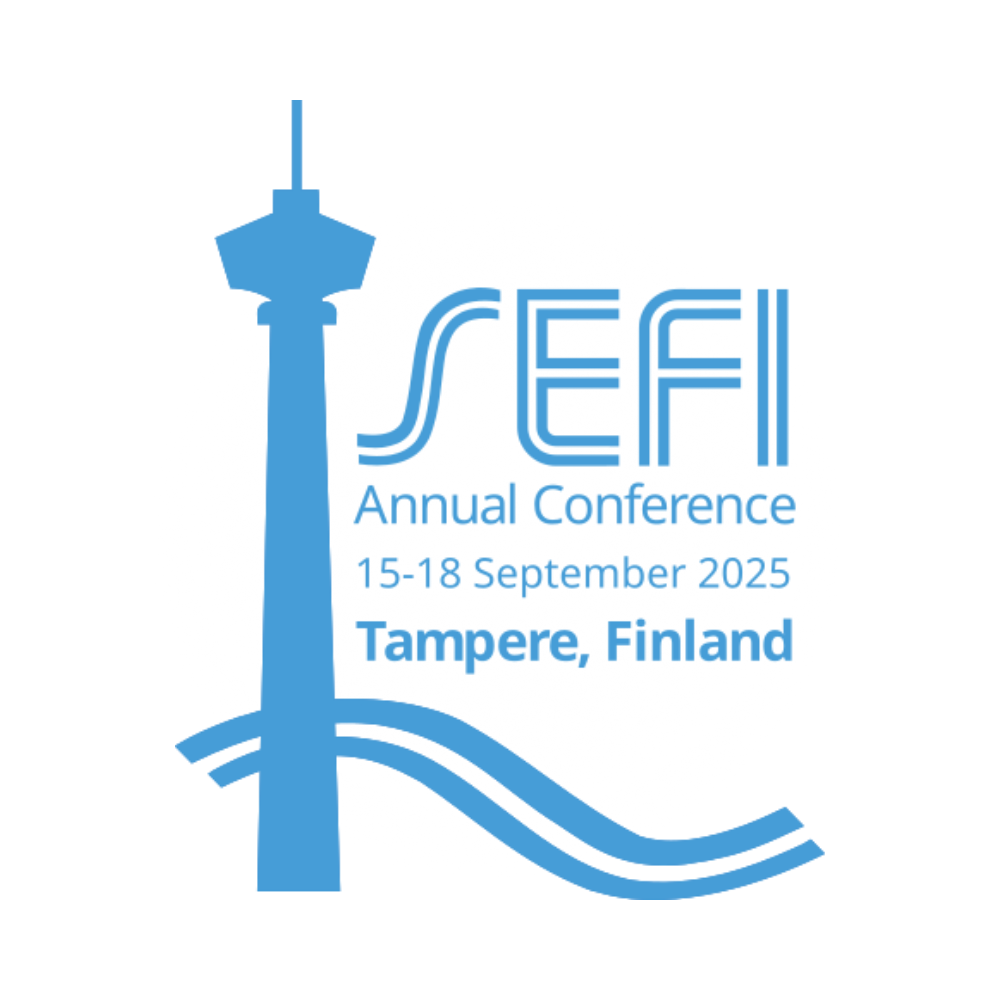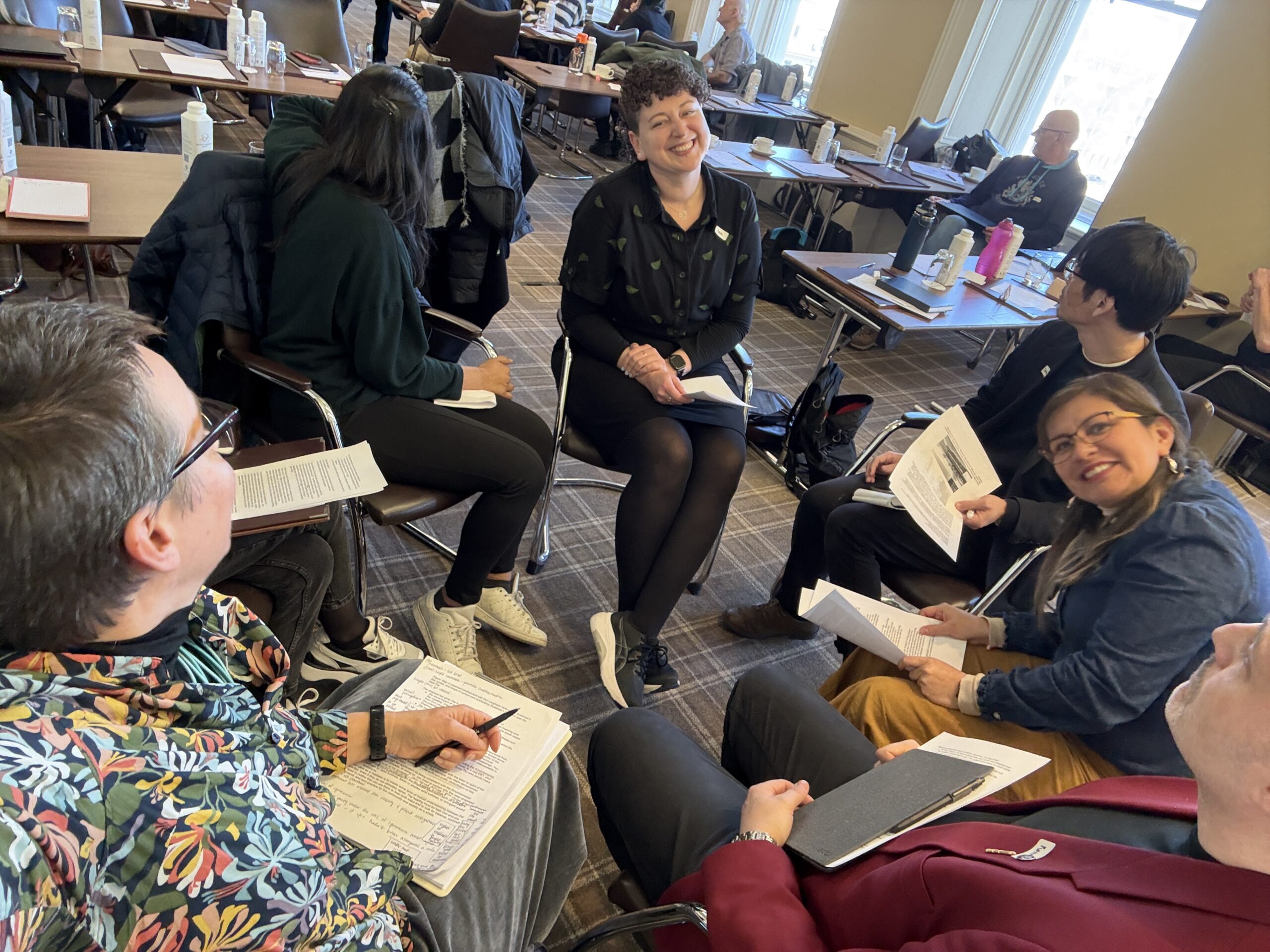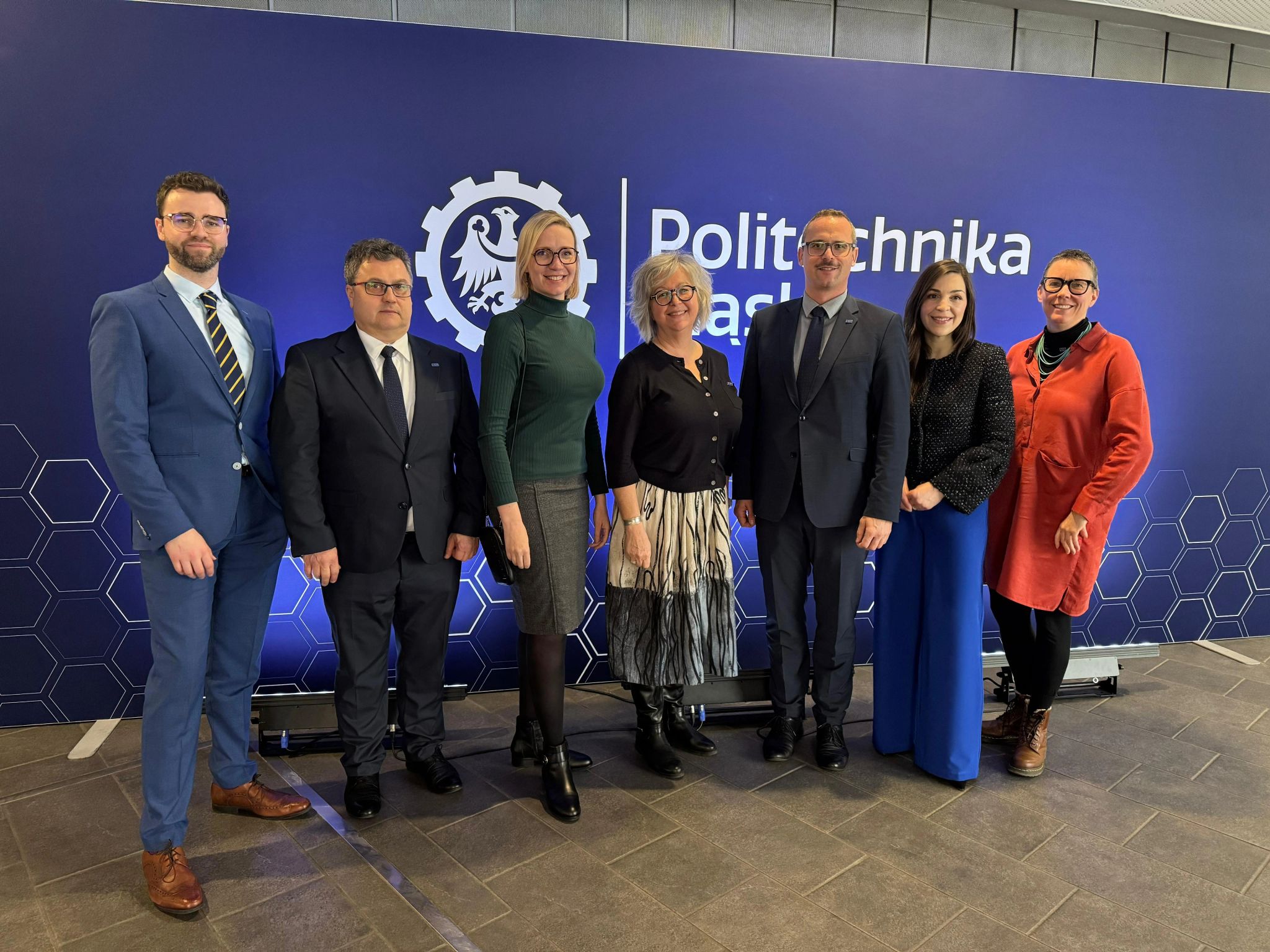We are excited to announce that registrations for the 53rd SEFI Annual Conference are now…
Madeline Ruth Polmear from VUB on leadership with Natalie Wint and Neil Cooke

In this episode we discuss how leadership is conceptualised within engineering education with Madeline Polmear, a Marie-Curie, EUTOPIA Science & Innovation COFUND Fellow within the Law Science Technology and Society Research Group at Vrije Universiteit Brussel in Brussels. Her interdisciplinary background is in engineering education research with a focus on bridging technical and nontechnical competencies to foster engineering students’ societal responsibility, workforce preparation, and leadership. Madeline combines this expertise with those she holds in capacity building, to propose ways in which engineering educators can be empowered to develop their ability to teaching leadership to engineering students.
Leadership is considered as critical to the success of engineers and there is a growing expectation, held by both employers and accreditation bodies, for every student to demonstrate capability in leadership. Despite this, leadership is still not well understood and there is a lack of consensus about what is involved in the development of leadership skills. Furthermore, it is unclear whether engineering educators have leadership training and indeed, how their own experiences and roles
influence their teaching of leadership.
The rest of the article will summarise the key points discussed.
What is leadership?
Madeline argues that there continues to be a lack of consensus around what constitutes leadership, this issue being compounded by the variety of contexts in which the term is used. Although traditional definitions focus on an individual’s ability to influence a group towards a common goal (Northouse, 2013), in practice leadership is increasingly conceptualised as a process and set of competencies. The focus has thus shifted from leadership as an innate skill possessed by individual
leaders, towards the ecosystem in which leadership operates. Madeline claims that leadership should be considered at both the microscale (which concentrates on the way in which individuals operate in teams and advance through their career) and the macro scale (which highlights the role that the engineering profession has in solving complex societal issues).
What skills are involved in leadership?
Madeline explains that leadership is now considered as a meta competence which involves many technical, interpersonal, and intrapersonal skills including ‘seeing the bigger picture’, organising, risk taking, communication, adaptability, and responsibility. She argues that the availability of operational definitions allows educators to design effective interventions, and that leadership can be integrated
into instruction in entrepreneurship and service learning in which authentic tasks are completed within teams.
What do educators and students think about leadership?
Madeline has found that the views of both educators and students fall on a spectrum, from those who view leadership as innate, and who thus don’t feel compelled to teach or learn it, to those who hold a more nuanced, contemporary perspective.
What are the implications of not teaching leadership?
Madeline claims that ineffective leadership instruction denies students the opportunity to develop. She claims that students need to understand what leadership means in context engineering and how skills are utilised within the workforce. Not only is it important to prepare them in ways to be effective in their future career but also to support holistic growth as a human. She argues that adopting approaches which focus on leaders as individuals who hold power can risk isolating students who may struggle to see themselves as leaders, and says that taking a more relational,
ecosystems approach can help students understand how people work together, regardless of their position, and empowers more people to be involved.
How can we develop educators’ ability to teach leadership?
Madeline explains that educators have increased demands and expectations placed on them with respect to equipping graduates with the increasing number of skills they require. In the context of engineering education, Madeline defines capacity building as developing and strengthening skills, processes, resources, individuals and organisations needed to survive, adapt and thrive in a fast changing world. She describes capacity building as a means of providing the training and support needed to help engineering educators to develop the confidence and competence that is needed to support students. Madeline claims that it is beneficial for formal capacity building activities to be combined with sustained engagement, for example, in the form of a Community of Practice (CoP) and describes the results of her own research in which it was shown that educators appreciated learning from the experiences and perspectives of peers. She proposes that fostering a community is particularly important for topics such as leadership which are at the margins of the curriculum, and which are often left to a champion in the department (Klassen et al.2020), this leading to an isolated, rather than integrated approach to inclusion within the curriculum. A critical mass can thus help mitigate resistance from colleagues.
How can we ensure that capacity building activities are effective?
Madeline explains a need to understand human behaviour and reasons why people chose to engage with capacity building activities. She alludes to the COM-B model (Michie et al., 2011) which includes three dimensions that influence human behaviour: motivation, opportunity to engages; and physical/psychological ability to engage. She explains that the effectiveness of activities and interventions are limited by willingness to participate and engage. It is thus important to understand how and why educators chose to participate in activities. She highlights common barriers including lack of availability of pedagogical training; lack of reward structures; and a misalignment between individual values and environmental values.
Some of Madeline’s work about leadership can be found below:
Polmear, M., Volpe, E., Simmons, D. R., Clegorne, N. & Weisenfeld, D.
(2022) Leveraging faculty knowledge, experience, and training for leadership
education in engineering undergraduate curricula, European Journal of Engineering
Education, 47(6), 950-969, DOI: 10.1080/03043797.2022.2043243
Bae, H., & Polmear, M., & Simmons, D. R. (2021, July), Faculty Members’
Perceptions of Engineering Students’ Preparedness for Leadership
Competencies Paper presented at 2021 ASEE Virtual Annual Conference Content
Access, Virtual Conference. https://peer.asee.org/37182
Simmons, D. R.; Clegorne, N; Polmear, M.; Scheidt, M. ; Godwin, A. Connecting
Engineering Students’ Perceptions of Professional Competencies and Their
Leadership Development Journal of Civil Engineering Education, 147(2) Apr 2021
https://doi.org/10.1061/(ASCE)EI.2643-9115.0000031
Other references mention here:
Klassen, M., D. Reeve, G. J. Evans, C. Rottmann, P. K. Sheridan,
and A. Simpson. 2020. “Engineering: Moving Leadership from the Periphery to the
Core of an Intensely Technical Curriculum.” New Directions for Student
Leadership 2020 (165): 113–124. doi:10.1002/yd.20373.
Michie S, van Stralen MM, West R. The behaviour change wheel: a new method for
characterising and designing behaviour change interventions. Implement Sci. 2011
Apr 23;6:42. doi: 10.1186/1748-5908-6-42. PMID: 21513547; PMCID: PMC3096582.
Northouse, P. G. (2013). Leadership: Theory and practice. Thousand Oaks, CA:
SAGE Publications.


